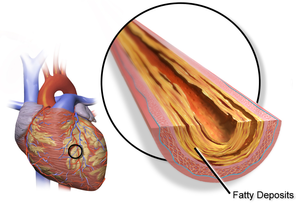
Background: Thousands of studies have been published based on animal and human studies evaluating garlic’s effects and safety.
Objective: We reviewed the available literature investigating the effects of garlic supplements on hypertension,hypercholesterolemia, C-reactive protein (CRP), pulse wave velocity (PWV), and coronary artery calcium (CAC), as well as available data on side effects.
Methods: We searched PubMed for all human studies using medical subject heading words through 30 May 2013 and assessed relevant review articles and original studies. Only double-blind, randomized, controlled trials and meta-analyses of double-blind, randomized, controlled trials were included. The review of articles and data extraction were performed by 2 independent authors, with any disagreements resolved by consensus.
Results: Garlic supplementation reduced blood pressure by 7–16 mm Hg (systolic) and 5–9 mm Hg (diastolic) (4 metaanalyses and 2 original studies). It reduced total cholesterol by 7.4–29.8 mg/dL (8 meta-analyses). The most consistent benefits were shown in studies that used aged garlic extract (AGE). A few small studies that used AGE also showed favorable effects on CAC, CRP, and PWV. Although garlic is generally safe, rare adverse reactions have been documented with limited causality established.
Conclusion: We conclude that garlic supplementation has the potential for cardiovascular protection based on risk factor reduction (hypertension and total cholesterol) and surrogate markers (CRP, PWV, and CAC) of atherosclerosis. Larger studies are warranted to evaluate these effects furthe
